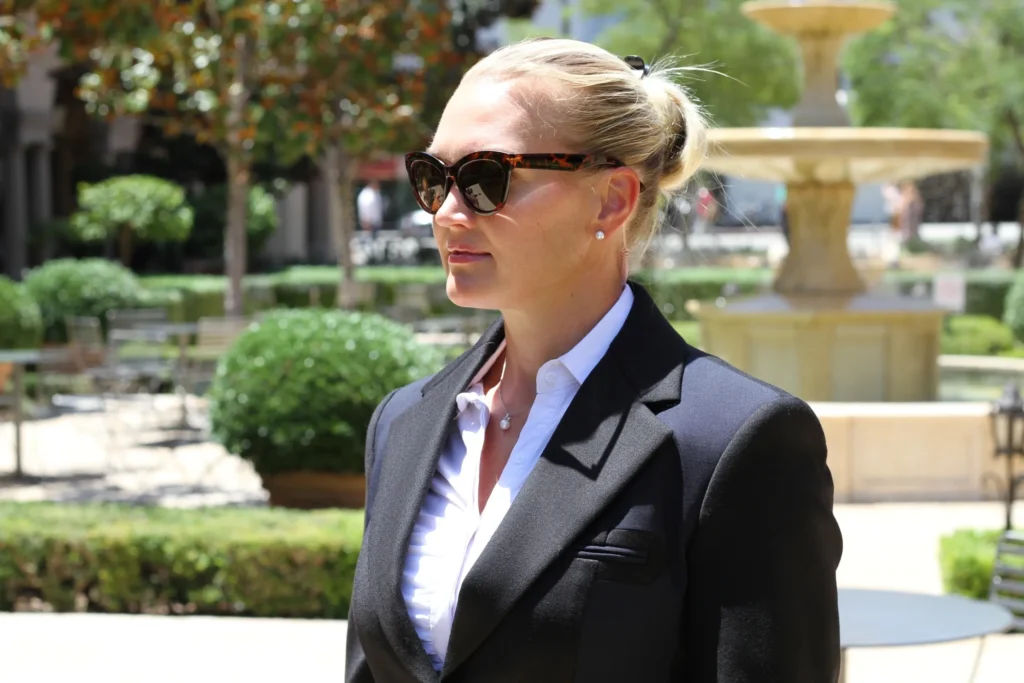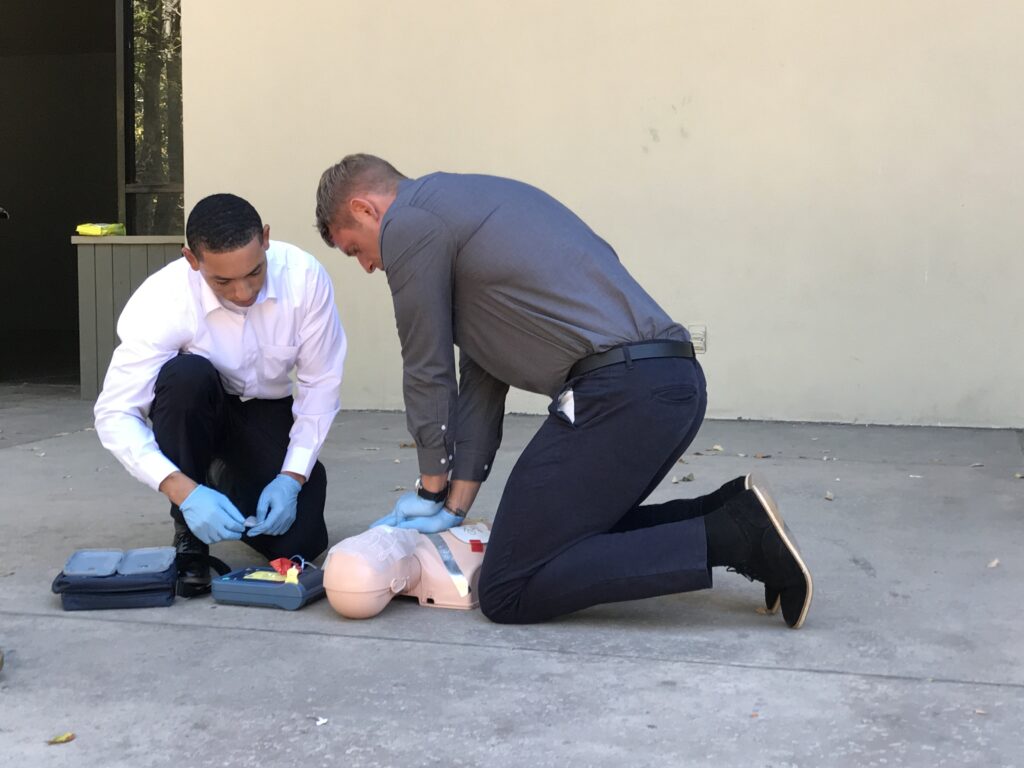Are you looking to start a career in executive protection? Whether you’re looking to transition from a law enforcement or military background, or just wanting to break into the security industry, there are some important things you need to know before getting started.
In this blog post, I’ll discuss everything you need to know about how to start a career in executive protection and what it entails. So if you’re ready to take the plunge and enter this exciting field of security, let’s get started!
How do you become an executive protection agent
Benefits of a Career in Executive Protection

Executive protection is a career with an array of potential benefits, including challenging and interesting travel opportunities, the ability to develop professional relationships, financial rewards, employable transferrable skills and the possibility to work in an international arena.
Working as an executive protection officer offers the opportunity to learn self-defence techniques and to gain supplementary certifications that could enhance future job prospects. This work typically involves understanding safety protocols for business trips, vehicle security measures, as well as physical risk assessments of various locations. Furthermore, it may also require liaising with governmental entities to ensure a client’s security needs are met both domestically and abroad.
Another advantage of working in it is the prospect of engaging in corporate travel opportunities such as providing high-level security for CEOs and dignitaries during business conferences or trips overseas. The opportunity to network with influential players in government and industry can lead to valuable connections for succeeding within this niche expertise area or outside diversified careers fields. Additionally, working in international settings can provide opportunities to gain knowledge regarding international travel procedures and adaptive use of cultural norms which can prove invaluable internationally across diverse group dynamics situations.
In addition to all these benefits, it offers attractive earning potentials; due to the increased demand for qualified personnel with specialised skill sets leading earned salaries often exceeding market rates depending on location of operation with good scope for advancement where seniority comes into play when determining financial remunerations making it a desirable vocation of choice or secondment either externally sponsored (concierge services) or internally managed by corporate entities/organisations (executive insurers).
Qualifications and Skills Needed for Executive Protection

It is an important job and requires a special combination of qualifications and skills. Having the right background is essential for success in the field. The core qualifications required for executive protection can be broken down into two categories: physical and mental characteristics.
Physical Characteristics: These agents need to be in excellent physical shape, with quick reflexes and sound judgement in stressful situations. Agents should also be able to maintain their composure under pressure and display a high level of alertness when performing their duties. Agents must have excellent eyesight and hearing, as well as good hand-eye coordination, balance, flexibility and agility.
Mental Characteristics: Executive Protection agents should have strong communication skills that allow them to interact with clients effectively in professional settings. Problem-solving abilities are also important; agents need to anticipate potential risks before they occur while remaining calm under pressure. Clear thinking, logical judgement, keen observation skills, intuition and common sense are all essential qualities of an effective executive protection officer.
In addition to having these qualities, these agents should have a high level of self-discipline, strength of character and respect for clients’ safety at all times. It’s also helpful if you have knowledge of relevant computer systems for organizing meetings or managing budgets that may come up during a job assignment. Having knowledge about travel arrangements, political figures or security protocols can also increase your value as an executive protection professional. Working towards certification from a recognized body such as the Close Protection Association can further enhance your credentials in this field.
Challenges of Working in Executive Protection

Working in executive protection can be an extremely rewarding and challenging career. It is also very demanding and comes with unique challenges that require specialized skills, knowledge, and experience. The job of executive protection is to provide safety and security for high-profile people, such as business leaders, government officials, celebrities, or dignitaries.
The primary challenge of working in executive protection is dealing with the ever-changing threats that come with protecting high-profile people. The constant monitoring for potential security threats to their charge means creating detailed plans and strategies to protect them from harm at all times. They need to remain vigilant at all times and possess a deeper understanding of the ever changing global threat landscape as it pertains to their specific environment/locales they are providing services in.
In addition to being knowledgeable about risk assessment measures and analyzing potential risks in any given situation, ensuring the physical safety of the principal requires constant situational awareness which requires excellent communication skills with both the charge and other personnel involved in the protective operation. It utilizes subordinate staff members as a source of intelligence gathering such as uniformed local law enforcement officers who are valuable resources for trustworthy information regarding current terrorist activity or other threats in the area being visited by their charge.
Moreover, developing interpersonal relationships with key stakeholders (e.g., family members) along with building trust between parties while taking into consideration cultural sensitivities are essential when providing services abroad or domestically during times when there may be politically charged environments requiring tactful diplomacy when navigating potentially volatile situations. Last but not least, successful recruiters must have a strong aptitude for problem-solving on short notice when issues arise along with managing competing priorities while also exercising financial responsibility with any budgeted programs they may have total oversight on behalf of their charge/clientele base.
Conclusion
In conclusion, an executive protection agent has the potential to become a rewarding and fulfilling career. Becoming successful in this field requires dedication, ambition, and the willingness to pass rigorous pre-employment screenings, training requirements, and certifications. It’s also important to build strong relationships with your coworkers and industry partners as it will help you acquire valuable job experience.
With the right attitude and commitment, executive protection can be a very lucrative career

